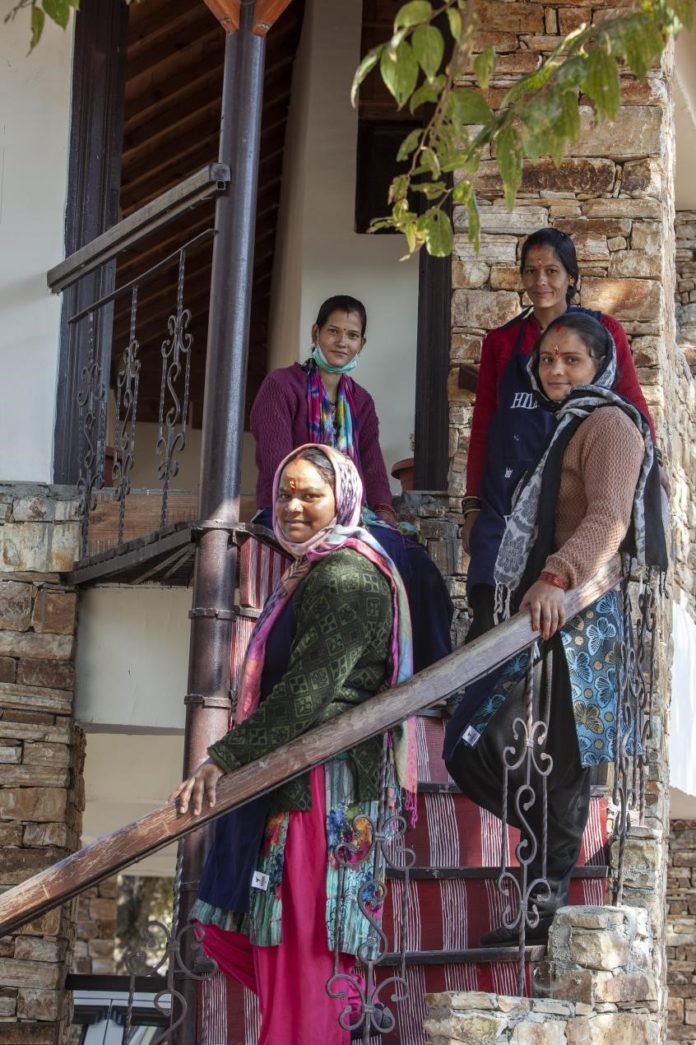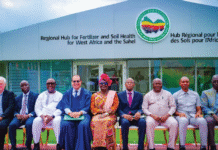The UN’s International Fund for Agricultural Development (IFAD) and the Government of India signed a US$ 105 million financing agreement last week for a project in the northern state of Uttarakhand that aims to double rural incomes, reaching over half a million families across the state. It will do this by supporting smallholder farmers, agricultural labourers, and micro and small agribusinesses to start and expand competitive businesses and focus on food production that is climate-resilient.
The Rural Enterprise Acceleration Project (REAP) builds on the successful Integrated Livelihoods Support Programme (ILSP) which closed in 2021. ILSP helped over 650,000 rural people across the state to find sustainable livelihood opportunities, by organizing producer groups into self-reliant cooperatives known as livelihood collectives. Because these livelihood collectives work on scale, they are better positioned to ensure a robust value chain, as well as to access information, credit, technology and markets.
“Nearly 60 percent of households reported that their incomes increased by half or even doubled because of ILSP interventions,” said Ulaç Demirag, IFAD Country Director, India. “Rural entrepreneurs are agents of change – they have the potential to accelerate innovation and create wealth. By investing in them and creating the right environment for their businesses to thrive, we help people build prosperous lives for themselves, their families and their communities.”
Located in India’s Himalayas, Uttarakhand is extremely vulnerable to climate change impacts and prone to extreme weather events, with cloudbursts and heavy rainfall causing floods and landslides. Based on the ILSP project success, REAP will leverage livelihood collectives to achieve its objectives and will aim to reduce the risks and impacts of climate change by promoting climate-smart agricultural practices, as well as by incorporating measures for efficient use of water.
REAP also aims to address the high rates of migration from Uttarakhand, both seasonal and long-term, because of a lack of job opportunities. During the COVID-19 lockdown in 2020, more than 420,000 migrants returned to their hometowns and villages because they lost their jobs elsewhere. The project will provide access to technology, finance, and business development services to boost self-employment and wage-employment opportunities for young people.
Sachin Kurve, Secretary, Rural Development Department, Government of Uttarakhand, who signed the loan agreement on behalf of the state government, said, “Our goal is to help small-scale farmers adapt their production systems to the changing climate, by prioritising agricultural practices that are more resilient to weather related shocks. At the same time, we invest to bring agricultural production in the state to industrial scale, so that farmers can access markets and we accelerate growth and create employment through value addition. The project will also promote non-farm sectors like handicrafts, tourism, etc., to diversify the rural economy. It will benefit 560,000 rural households.”
IFAD is providing a $105 million loan towards the total project cost ($378.05 million). In addition, the Government of Uttarakhand is providing $24 million, with $14 million contributed by project participants themselves. The project is expected to leverage at least $48 million through convergence with existing national and local government schemes, as well as $186.6 million in private investment, including from domestic financial institutions.
India is a founding member of IFAD, and IFAD has worked in India for more than 40 years. The current country strategic opportunities programme is fully aligned with the government’s policy framework and efforts to ensure that smallholder food and agricultural production systems are remunerative, sustainable and resilient to climate change and price shocks. To date, IFAD has supported 32 rural development projects in India worth US$1.2 billion. These interventions have directly benefitted over 6.34 million families.
Read more about IFAD’s work in India









